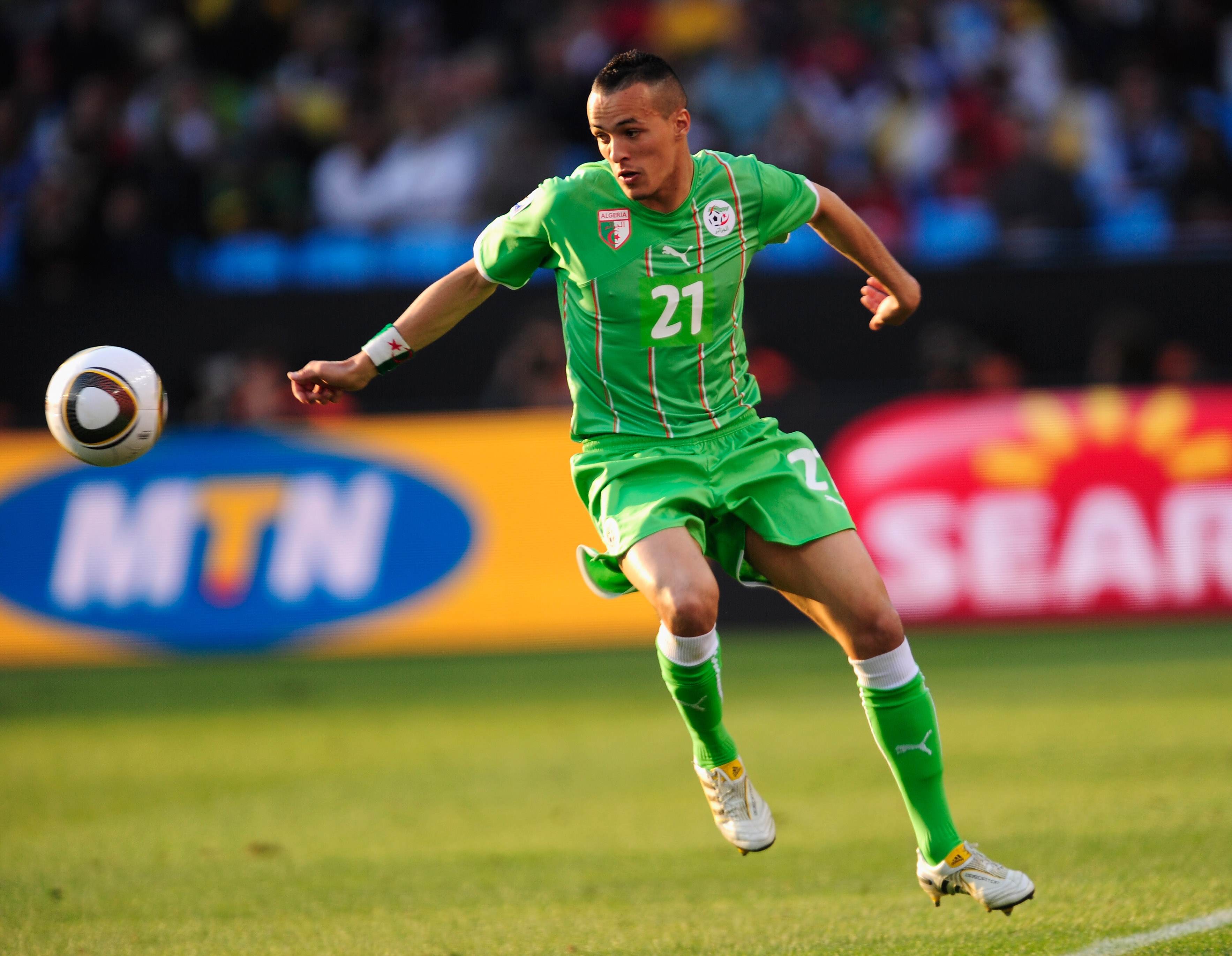The current FIFA ranking suggests that a burgeoning class of high-flying newcomers are leaving their imprint on the global game.
Belgium are top after a decade-long overhaul of their game, Copa America champions Chile starring Arsenal-star Alexis Sánchez sit in fifth place and winter sport-adoring Austria complete the top ten after qualifying for this summer’s Euro 2016.
But can Algeria beat the odds to become Africa’s representative in that selective little club? The FIFA rankings are a puzzling exercise in mathematics, but the answer could be an emphatic yes. Cape Verde sit at 31 and Ivory Coast at 36 as Africa’s highest-ranked teams. But there is a second golden generation of players in Algeria and it seems like the North Africans at 37th won’t settle for anything less than continental control and influence beyond African shores.
In the 80s Rabah Madjer, Lakhdar Belloumi and Salah Assad led Algeria to the Spain World Cup. It was only German Horst Hrubesch’s lone goal that prevented Algeria from progressing beyond the group stages in what was called the ‘Disgrace of Gijón’, a 90-minute pantomime that led to both Germany and Austria qualifying for the knockout-phase and left Algeria out in the cold.
At the last finals in Brazil in 2014, Algeria were arguably Africa’s prime performer.
In Mexico, four years later, Algeria scored just one goal: Djamel Zidane against Northern Ireland, enough for a consolation draw and a solitary point in group B.
In the 90s a long civil war stymied any football hopes. The ‘Fennec Foxes’ muddled in mediocrity and didn’t reappear on the global stage until the 2010 World Cup, when the great cup came to Africa. The Algerians disappointed again in South Africa. They were a team playing to their own limitations: defensively, organised and thoroughly unimaginative. Their goalless stalemate with England was an apt example.

At the last finals in Brazil in 2014, Algeria were arguably Africa’s prime performer. They didn’t manage a revenge for the disgrace of Gijón but pushed a prosaic Germany and sweeper-keeper Manuel Neuer to the brink of elimination in the second round. Bosnian coach Vahid Halilhodžić combined a safety-first approach with a bit of style and flair in his 4-3-2-1 formation.
Algeria are benefiting from the long-standing migration to Europe.
The Brazil World Cup was the antithesis of Algeria’s previous World Cup campaign, but both tournaments demonstrated the team’s progress in a short span of time. Algeria are benefiting from the long-standing migration to Europe. The national coach can dip into two markets, either the competitive domestic league or the sizable migrant community in Europe, notably in France.
Algeria missed out on Zinedine Zidane, Karim Benzema and Samir Nasri in the past, but are courting any players with credible links to Algerian soil. As a result more French-born players play for the national team.

Algeria sourced many international players for their last three international tournaments. In both South Africa and Brazil, their players were plying their trade in ten different countries. At the African Cup of Nations in 2015, in Equatorial Guinea, that number rose to 12.
It’s no easy feat to win Africa’s most prestigious football tournament.
There, the Algerians prematurely exited the tournament in the quarter-finals against Ivory Coast. It’s no easy feat to win Africa’s most prestigious football tournament: the Super Eagles from Nigeria waited 14-years for another title after their 1994 triumph; Cameroon have had no success since 2002.
At the 2017 African Cup Nations in Gabon, Algeria may get another chance at toppling Africa’s established powerhouses. Last Friday the Algerians annihilated Ethiopia, 7-1 in the qualifiers. At home, at the impregnable fortress of Blida, the Desert Foxes exuded much collective attacking prowess. They netted seven times, including a wondrous first-time volley by Bologna player Saphir Taider. The stats confirmed the hosts’ utter domination: Algeria had 67% of ball possession and 755 completed passes.
Their next encounter with Ethiopia should have been a formality to ensure qualification, but Algeria slacked. In the first leg Algeria were at times overly expansive and short of realism. This time they were simply lax in their application and stumbled to a 3-all draw. Coach Christian Gourcuff had set out with an attacking 4-4-2 formation, but had to readjust to a 4-3-3 to neutralise Ethiopia’s offensive threat.
They just have to understand that their new status in African football.
The Breton stated that he doesn’t need to revolutionise Algerian football though: Sofiane Feghouli, Yacine Brahimi and Riyad Mahrez provide him with a very potent offensive force. They just have to understand that their new status in African football requires more maturity and professionalism than choking away to Ethiopia.
In May, Algeria will get a new chance to seal qualification for CAN 2017 against the Seychelles. That should be a chance for Algeria to consolidate and further advance their status as the continent’s rising power.
